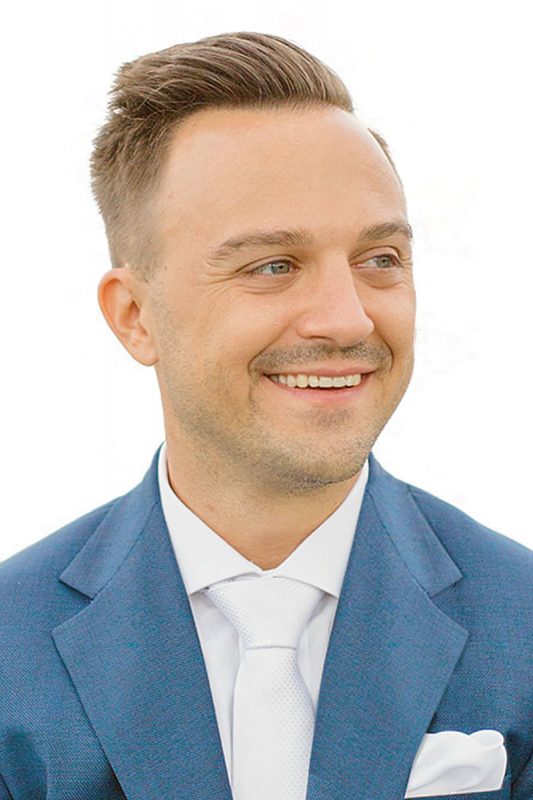Meet the NYCHG Members: Jimmy Page of Hudson Creative
Learn more about our member, Jimmy Page!
Home » Meet the NYCHG Members: Jimmy Page of Hudson Creative

By: Jimmy Page
Jimmy Page (not of Led Zeppelin) had a circuitous route to the hospitality world, starting his career in the world of mixed martial arts (outside the ring, but still!). That unique path led the Fordham University Gabelli School of Business graduate to found Hudson Creative. The first of its kind, the firm is a search-focused digital marketing agency that caters specifically to restaurant groups. His clients include Patina Restaurant Group, Urbanspace, Wolfgang Puck Catering, Lenwich, City Winery, NYC & Company, LDV Hospitality and Pepsico.
Q: Let’s get the toughest question out of the way! What is your favorite restaurant in New York City?
Jimmy Page: I go to restaurants because they are experiential, so I’m translating your question to what’s one of my favorite restaurant experiences. Because that’s how I remember restaurants — who you were with, what you ordered, what music was playing, the whole experience.
So, I would say it was a few years back, my now-wife and I were just dating at the time and we didn’t even have Valentine’s Day reservations, and we just walked into Noreetuh in the East Village. They didn’t have tables, but they sat us at the bar and they had a tasting menu for Valentine’s Day and the food was incredible and we made good friends with the bartender. We were just talking the other day about what a great experience we had!
Q: Does your name help you get a better table at restaurants?
JP: It didn’t that night! But I definitely get some people like, is it true? Can I see some ID? It’s usually a good conversation starter and I know that if someone makes the comment they listen to good music.
Q: You went to business school, but you didn’t take a traditional path out of the gate, correct?
JP: I went to Fordham’s school of business, and following that I wanted to have my own business and be an entrepreneur. When I graduated, I had a friend who was really into mixed martial arts, like MMA fighting, and we knew another guy who had a promoter’s license, so we started an MMA league in New Jersey called “UCC Fights.” We did seven events in two years and the average event size was twenty-five hundred people. It was not profitable, but it was fun and I learned how to organize events and people, and I had built a website for that, selling tickets online, which spurred my interest in digital marketing.
Q: How did you wind up focusing on restaurants?
JP: I wasn’t really sure what to do next, so I started working at a restaurant — Waterside in Fort Lee, New Jersey. And then during the day, I had approached a printer I knew in the area and told him if I could work out of his office during the day and sell websites to people coming to the shop, I would give him a percentage of the profits. He was Greek and he worked for a lot of restaurants, and through that experience, I built about a hundred websites in a twoor three-year period.
Business really started picking up and then two things happened. One, I became obsessed with what happens when you launch a website — not just building it and what it looks like when you launch it, but how it gets found in Google, how are people discovering the website. So, that’s a big part of what we do today; not just building websites but search engine optimization and focusing on how people find your website when they’re looking online.
The second thing that happened was that I had this idea in my head that if I can turn what I’m doing now into an official business and make it over the Hudson River into Manhattan (I was in Hackensack, New Jersey at the time), I would feel like I accomplished something — like I’d made it. So that was the origin of the name Hudson Creative — it was my journey from Hackensack over the Hudson River to open an office in Manhattan and have a New York City business.
Q: What is your process when taking on a new client?
JP: We offer three different services — search engine optimization, online advertising, and website design and development. The first step in our process is identifying what somebody’s needs are. They may come to us saying they want social media help, and I’ll say, talk to me about that. Why do you need social media? And ultimately it may be that they are trying to generate more revenue through their website. So it starts with understanding their goals and then we can give them a recommendation, even if it isn’t something we work on. It starts with listening and then educating.
Q: I feel like a lot of restaurant operators think, well, if I build a website, they will come, and the proactivity ends there. Do you find that to be true?
JP: What we do is help restaurants understand and then influence the path somebody might take online to explore where they want to go out to eat next. We help the restaurateurs find their place in that process and map the guest journey from “I’m hungry!” to “That place was awesome!”. Maybe five years ago there were only a few specific places people would go online to find a new restaurant, like Yelp or OpenTable. These services propelled this phenomenon of people going online to figure out where they wanted to eat next.
But then Google got involved so you can look things up online, and Google is unique for restaurant operators because you’re not necessarily making a reservation with Google. You’re making it on the restaurant’s website. OpenTable is trying to get reservations through their system; Yelp is trying to get you to look up information on Yelp and keep you there. We’ve found our footing with Google because Google helps to push restaurants and link to their websites directly so the restaurants own their customer data and own their customer journey and experience. That becomes even more important when you’re talking about online ordering. The difference between someone ordering from a restaurant’s “native online ordering” vs.online ordering from Seamless or Grubhub represents a huge percentage of restaurant profit that they either keep or give away to a third party.
Q: I’ve seen a lot of restaurants that don’t even have a website and opt for a Facebook page, but I keep wondering why anyone would give a third party power over their content?
JP: That’s exactly it. You need the ability to own your own content. It’s a key piece of branding strategy to tell your own story. With your own website, you have the freedom to choose what it looks like and what the experience is. And the problem of not controlling that is even bigger with online ordering and reservations.
If a diner goes to OpenTable to make a reservation, the next time they go to make that booking, they’re going to remember that they have to go to OpenTable. The same goes for Grubhub. But if a restaurant can create their own website, they can influence that customer journey through their own channels. They can keep everyone’s email address and reach out later because they have that information.
We work to empower restaurants with the tools they need to take ownership of those channels and to take ownership of the whole guest experience.
Q: These days everyone is a web designer — sometimes to not the greatest results. Are redesigns always part of the process if a site is subpar?
JP: Building a website is not a return on investment activity. You need to have a website and there’s the process of building it, but then there’s the growing and the management of the website. We focus more on, you have a website, so now what can we do to grow your audience and reach more people? We don’t just say we’re going to build this thing for you. We’re going to talk to you about your goals and how to increase those goals over time.
Typically, then, I usually say you don’t need to redesign your website. Instead, I ask what are your goals? What are you trying to do? We really listen to people to figure out what they’re trying to do instead of jumping in and redoing their site. You don’t always have to throw the whole thing out.
Our process with SEO is that it starts with your website, but it probably finishes with fifty-plus additional networks that we log into and claim your listing for each location. We’ll edit your website and go through all these listings to update them with the right information a restaurateur wants diners to know, so that when someone is searching for something specific — LGBTQ-friendly, a particular ambiance, etc. — the restaurant has the ability to show up in that search. And that doesn’t have to involve a redesign.
Q: Are there any trends you’re seeing in the SEO or web development world as it pertains to restaurants?
JP: I think it involves price structuring for SEO services. Every other agency will tell you that it’s a long-term process and therefore you need to hire us via a monthly contract. What I tell restaurateurs is there is a threshold that exists when it comes to SEO. If your SEO is below this threshold, there’s an opportunity to improve it. If it is above this threshold, you’re doing great. They don’t need to contract with an agency on a long-term basis. You can hire someone on a project basis to meet a specific goal and once that’s complete if there’s another opportunity to help business growth in a different area, wonderful. If not, that’s okay, too.
Q: What’s on your plate project-wise that you’re particularly excited to dig into?
JP: We just got this amazing opportunity with Pepsi and their efforts toward a journey for racial equality. Part of the program is geared toward supporting Black-owned restaurants and helping them get set up with delivery so they don’t have to use third-party services. They’ll have a native system they can use. Then helping with website updates and SEO for all these restaurants.
Pepsi’s made this incredible commitment, and over the next five years, we’re going to work with over a thousand different Black-owned restaurants across the country. It’s incredible to work with Pepsi and to help independent restaurateurs who might not have had the same opportunities because of systemic racial barriers.
Q: Last question: tasting menu or a la carte?
JP: I would go with a tasting menu because I like walking into a restaurant and being like, what are you known for? Tell me. Tell me what you know. What do you do that’s special? I want to be guided through your experience rather than create my own experience because I’m probably not as good at it.
Get in touch with Jimmy Page and his team at Hudson Creative to discover how you can make your online presence shine.
Back to Blog PostsAbout NYCHG
Established in 2009, The New York City Hospitality Group ("NYCHG") is a New York City-centric organization dedicated to serving the restaurant and hospitality industry. NYCHG is comprised of the best in class professionals that act as a resource to each other and the hospitality community.
Subscribe
2019 nychg.org | Apply for Membership
